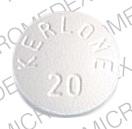Kerlone Interactions
There are 477 drugs known to interact with Kerlone (betaxolol), along with 18 disease interactions, and 3 alcohol/food interactions. Of the total drug interactions, 27 are major, 420 are moderate, and 30 are minor.
- View all 477 medications that may interact with Kerlone
- View Kerlone alcohol/food interactions (3)
- View Kerlone disease interactions (18)
Most frequently checked interactions
View interaction reports for Kerlone (betaxolol) and the medicines listed below.
- Actos (pioglitazone)
- Adderall (amphetamine / dextroamphetamine)
- Adderall XR (amphetamine / dextroamphetamine)
- Adthyza (levothyroxine / liothyronine)
- albuterol
- Allegra (fexofenadine)
- allopurinol
- Amaryl (glimepiride)
- Ambien (zolpidem)
- aspirin
- Aspirin Low Strength (aspirin)
- Atarax (hydroxyzine)
- Avapro (irbesartan)
- baclofen
- Benadryl (diphenhydramine)
- Botox (onabotulinumtoxinA)
- buspirone
- Celexa (citalopram)
- cholecalciferol
- Cogentin (benztropine)
- Flexeril (cyclobenzaprine)
- metformin
- Norvasc (amlodipine)
- potassium chloride
- prednisone
- Synthroid (levothyroxine)
- Tofranil (imipramine)
- Toradol (ketorolac)
- Vitamin C (ascorbic acid)
- Zofran (ondansetron)
Kerlone alcohol/food interactions
There are 3 alcohol/food interactions with Kerlone (betaxolol).
Kerlone disease interactions
There are 18 disease interactions with Kerlone (betaxolol) which include:
- bradyarrhythmia/AV block
- cardiogenic shock/hypotension
- CHF
- diabetes
- hemodialysis
- hypersensitivity
- ischemic heart disease
- PVD
- renal dysfunction
- cerebrovascular insufficiency
- glaucoma
- hyperlipidemia
- hyperthyroidism
- myasthenia gravis
- pheochromocytoma
- psoriasis
- tachycardia
- asthma/COPD
More about Kerlone (betaxolol)
- Kerlone consumer information
- Compare alternatives
- Drug images
- Side effects
- Dosage information
- During pregnancy
- Drug class: cardioselective beta blockers
- Breastfeeding
Related treatment guides
Drug Interaction Classification
| Highly clinically significant. Avoid combinations; the risk of the interaction outweighs the benefit. | |
| Moderately clinically significant. Usually avoid combinations; use it only under special circumstances. | |
| Minimally clinically significant. Minimize risk; assess risk and consider an alternative drug, take steps to circumvent the interaction risk and/or institute a monitoring plan. | |
| No interaction information available. |
Further information
Always consult your healthcare provider to ensure the information displayed on this page applies to your personal circumstances.


